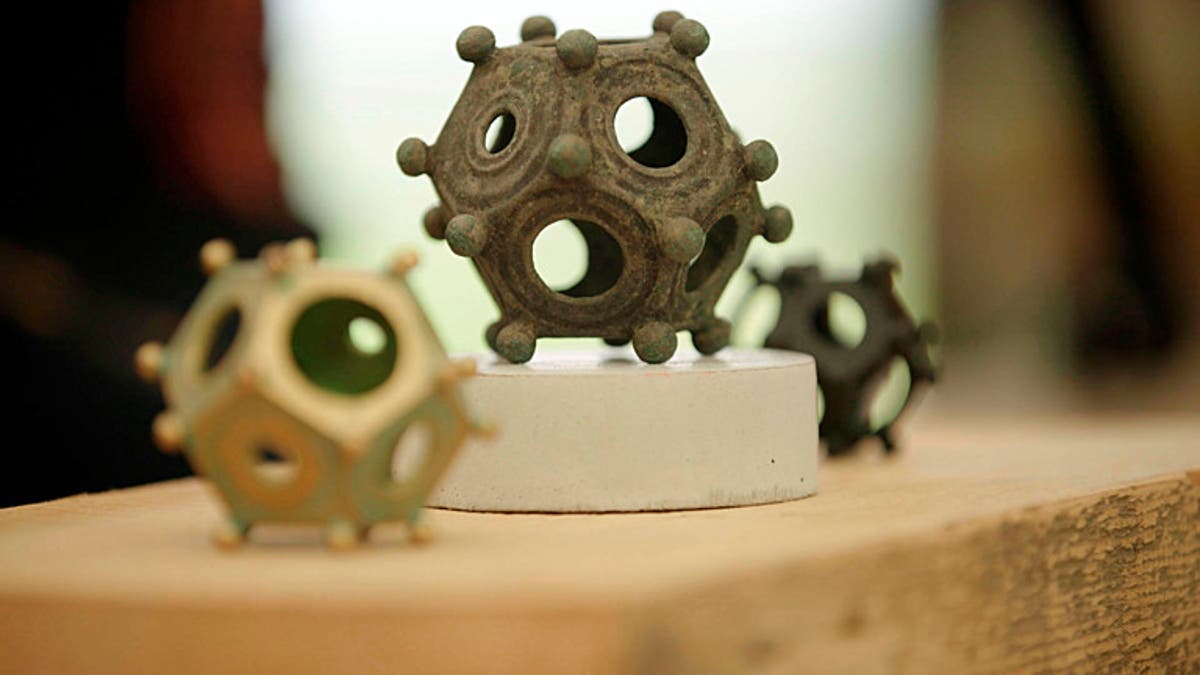A mysterious Roman object unearthed in an amateur dig has baffled experts as it goes on display in Britain for the first time.
The 12-sided object was discovered in Norton Disney, near Lincoln, in 2023, and will go on display at Lincoln Museum as part of the city’s Festival of History.
Richard Parker, secretary of the Norton Disney History and Archaeology Group, said it was a “privilege to have handled” the dodecahedron, but was still at a loss over what it was.



Oh is that why the fraudulent archaeology group I’m on started talking about this weird meme that seems to think that the Romans understood the concept of knitting and that these would be practical to manufacture for that task.
We’ve been having a good laugh about it, although it’s the typical “what do you scientists know about anything” story that way too many people believe.
Ugh I hate this kind of folk knowledge circlejerking
If it was done with prior knowledge of Roman textile making (i.e. the Romans actually did know how to knit), it would be an okay archaeological experiment, and experimental archaeology is a valid form of archaeology.
But this was not that. This was some lady who knew how to knit, saw one and said, “that could be used to knit gloves.”
And the knitters who are part of the group have chimed in and let us know that it is far less practical than a knitting frame anyway.
Why wouldn’t Romans know how to knit? Did they not have sheep?
They didn’t know about it because it hadn’t been invented yet. Their textiles were mainly produced through weaving. We have plenty of Roman textile samples to know how they made them.
Hmmm, interesting. I always assumed knitting was about as old as sheep shearing.
As someone with a BA in Archaeology, the idea that the Romans didn’t understand the concept of knitting, is the dumbest thing I’ll read today.
FFS, they weren’t cave men…
deleted by creator
Hmm. Yeah, it seems like it’d come before weaving.
googles
https://en.wikipedia.org/wiki/History_of_knitting
It does say that the oldest known stuff was from 11th century Egypt, but I assume that that’s because it’s a cloth artifact, not metal, ceramic, or stone, so less survives.
So this leads me to another “might be” kind of answer.
A weight to heave lines
I know that monkey fist and similar other knots to help casting a line to a dock or whatever als frequently have weights in them, the nubs and holes could help keep it from getting lost.
It’s a good theory, but they are found all over the place and not necessarily close to water.
Just spitballing on my part. I’m not sure what the context of the find is. I’d assume if it for knitting it’d be found near other tools for yarn craft. (distaffs, drop spindles, or whatever they used. and the, uh, yarns.)
I’d assume if it was for tent poles, it’d be found stored near tents, Similarly, if it was for casting lines… it’d be near ropes- though rope would have needed to be tossed for a variety of tasks beyond purely naval interests.
another potential is as some sort of lampshade for a candle/oil lamp. Though that’d probably be pretty self-evident, with soot and all.
A candle holder has been one of the possibilities suggested because a couple of them were found with wax inside, but some of them don’t have any holes at all. They aren’t all uniform in size, some have holes, some don’t. Some have knobs, some don’t. The only thing they all seem to have in common is that they’re dodecahedrons.
well, that complicates things.
Are we sure they’re just not messing with us?
That’s my other guess. It was an ancient plot to confound future archaeologists.
4th century welding test
“I call it: the Roommates”
Thanks. I was about to embarrass myself 😅
Just so anyone else doesn’t- the Romans didn’t know how to knit (it originated around the 11th or 12th century in the Middle East): https://motherknitter.com/history-of-knitting/
That link mentions that finger knitting was practically prehistoric. Are we confident that there was not some rudimentary form of knitting being practiced?
There are a great many Roman fabric samples from dry areas like Egypt, along with stone carvings of people making Roman textiles and writings about Roman textile-making and none of it suggests they understood the concept of knitting.
More to the point, these objects would be less practical than a knitting frame anyway.
And it doesn’t answer all questions about the object. Why is the object polyhedral if you only use one side to do the knitting. If it’s a mundane item, why did they make it stupidly complex when a simpler shape would do. It also ignores why the wholes are different sizes when the size of the holes doesn’t affect the knitting.
Are you sure the hole size doesn’t affect the finger size? It would seem to change the stitch size. If so, having one object that could make different finger and thumb sleeves might be useful, and the shape makes it easy to hold and find.
Or maybe it’s for measuring how much spaghetti to put in the pot!
The hole isn’t used in the process of knitting with these things, just the knobs on the corners.